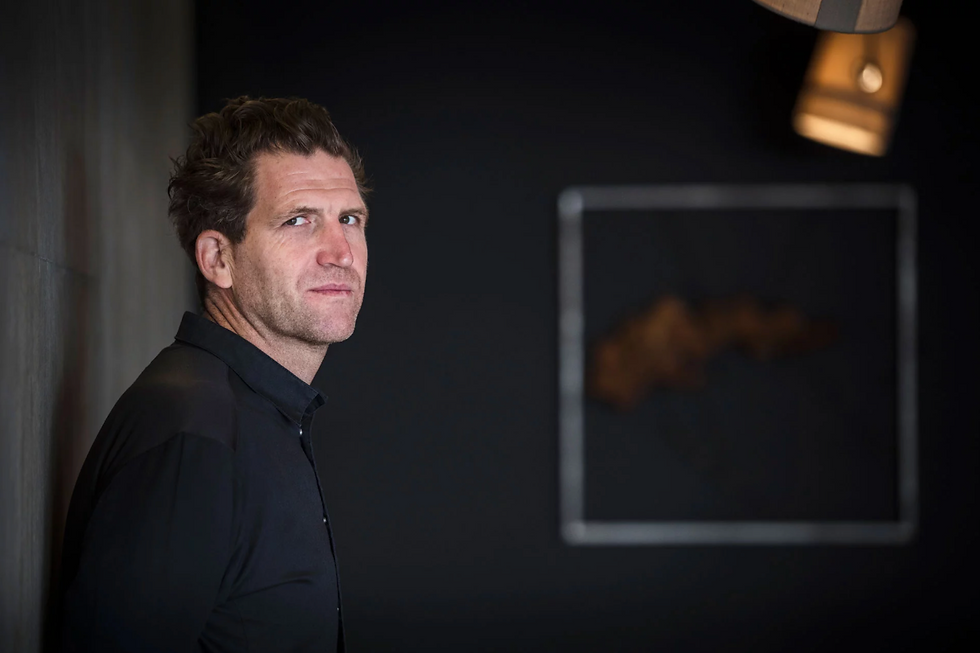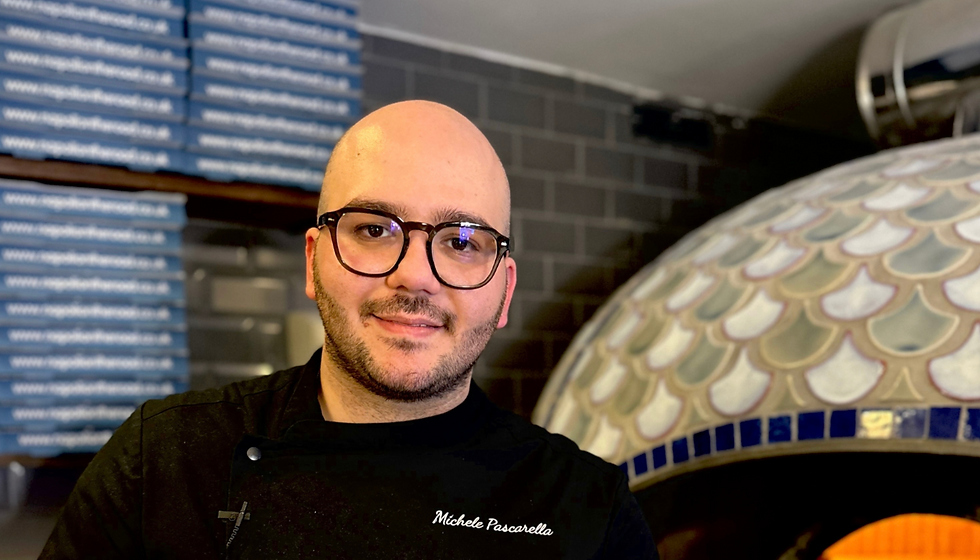Alexandre Mazzia - The Chef Cooking Meals for the Paris Olympics
- Ethan Parker
- Aug 19, 2024
- 3 min read
Alexandre Mazzia is a highly regarded chef in Marseille; however, his path into the culinary realm was unconventional.

Mazzia, the son of French parents, spent his formative years in the Republic of Congo, subsequently obtaining a degree in science before pursuing a career as a professional basketball player. He has always been passionate about food while concurrently pursuing a profession as a chef, completing culinary school and working in several French kitchens. Following an injury in 2004 that necessitated his retirement from athletics, Mazzia devoted himself entirely to the culinary arts, culminating in the establishment of his restaurant, AM Par Alexandre Mazzia, in Marseille in 2014, which subsequently earned three Michelin stars.
This summer, he will focus on an exhilarating new venture. Mazzia is one of three chefs preparing cuisine for the Paris 2024 Olympic Games, where he will operate his own venue adjacent to the Olympic food hall. We interviewed him to learn about his culinary offerings for sportsmen and guests.
What is your culinary philosophy?
AM by Alexandre Mazzia offers an insight into my essence. It pertains to self-discovery through my culinary endeavors. It is a venue where I dedicate my utmost efforts, as I am committed to its patrons. My culinary experience today differs from that of yesterday and will vary from that of tomorrow. The merit of this culinary writing lies in its continual evolution. It is a cuisine of humanity, a culinary expression of the soul. I engage in profound contemplation in my kitchen each morning, as the restaurant continually evolves alongside my culinary practices and dedication to gastronomy.
What items are included in your menu for the Olympics? What are the signature dishes?
I was fortunate to collaborate with nutritionists, sports physicians, physical trainers, and sports federations regarding the performance and recovery requirements of athletes in certain disciplines. I developed over 50 detailed recipes, including their attributes, potential contributions, and presentation for the Olympic Games. It will be applicable for athletes.
Conversely, with Sodexo Live!, the role is entirely distinct. I have created approximately 20 light and enjoyable recipes to be included in the Athletes' Village. These recipes will not affect performance or recovery. They embody the essence of French expertise and my culinary style. I will be present in the Athletes’ Village every Sunday and Monday for the duration of the Games when my meals will be provided.
Will there be an emphasis on vegetarian cuisine?
This year, the Olympic committee has committed to providing an increased selection of plant-based cuisine. One-third of the food in the athlete village will consist of plant-based options, while 60 percent of all food at the Games will be plant-based.
What factors must be taken into account while devising a meal for a sporting event of this nature?
The two salient points to consider are as follows:
Neuro-nutrition – associated with athletic performance and recuperation of athletes prior to and during an event.
The second objective is to provide athletes' families with a delightful dining experience, akin to a street food concept: engaging, casual, and replete with surprises.
The neuro-nutrition of our dietary choices and substances influences athletic performance and post-exercise recovery, which are interconnected. We must reciprocate to athletes through gastronomic experiences that evoke sensations and emotions, akin to what they provide us during their performances.
What is the influence of sustainability on the offering?
The shift towards a plant-based emphasis enhances the sustainability of products at The Olympic Games, eliminating the usage of single-use items; even the kitchen equipment is designed for numerous uses.
In what manner does your experience as a basketball player influence your culinary approach and food preparation?
My enthusiasm for culinary arts did not arise instantaneously. I was initially drawn to the camaraderie evident in the kitchens, which I found relatable due to its prevalence in team sports. It resonated with me immediately, as I played basketball professionally concurrently. It facilitated alleviating certain burdens at times while I concurrently followed both loves. Balancing both enabled me to excel in each area. Despite necessitating a distinct skill set, they facilitated my multifaceted growth, enhancing my understanding while providing enjoyment.
What are the differences between being a basketball player and becoming a chef?
Engaging in basketball imparted significant lessons in discipline; achieving a goal necessitates collaborative teamwork and perseverance towards a shared objective. The objective in culinary endeavors is to deliver the optimal experience for all patrons, which is, once more, a collaborative effort. Gastronomy is not intrinsically competitive; yet, one remains competitive with oneself. I believe I flourish under adrenaline; it is essential for my creativity and ongoing motivation. A significant lesson I got from playing basketball is that one cannot truly fail if they engage wholeheartedly and derive insights from the experience.





Comments